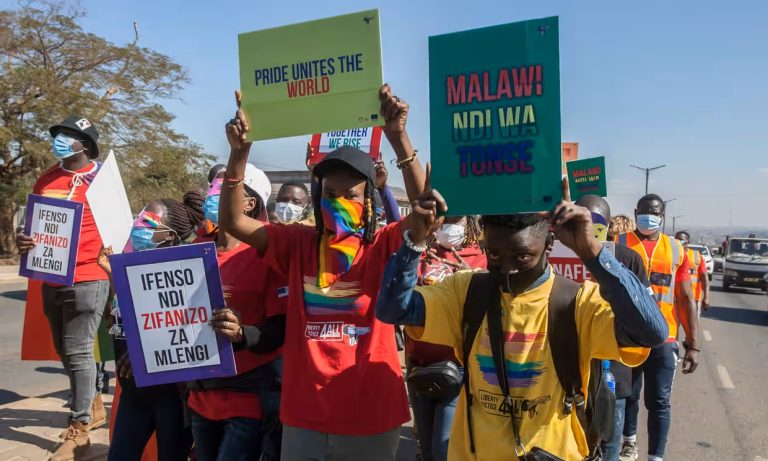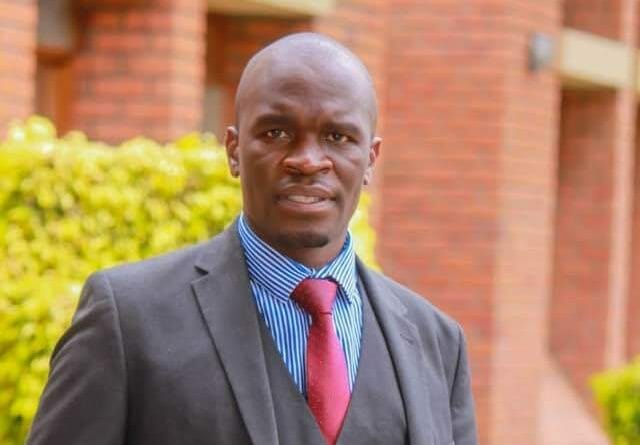BY JACK MACBRAMS
It had been at the end of an uneventful Lilongwe evening in January 2020 when 23-year-old Kotanna Chidyaonga walked, hand-in-hand with her boyfriend, ready to get into the car to go home.
Then something happened.
Kotanna is said to have stiffened up, looked down to her feet, and stopped walking. That was the beginning of a story that ended up with Kotanna dead, four young people charged with murder, a contentious pathology report, an inquiry by the Malawi Medical Council, and a well-known doctor’s reputation lying in tatters.
This week, the Kotanna Chidyaonga story delivered yet another twist. The Medical Council of Malawi has established that the 23-year-old, whose death grabbed as many headlines as it spurned unanswered questions, died as a result of medical negligence after PolyClinic in Lilongwe wrongly administered a lethal dose of vecuronium bromide, instead of anti-venom.
The Medical Council has since slapped the attendant GP Dr. Ruth Chimutu with a three-month suspension during which time she will undergo remedial orientation in the Accident and Emergency Department at Queen Elizabeth Central Hospital in Blantyre.

The Council’s assistant registrar, Richard Ndovie, told PIJ that a team of medical experts assembled by the Medical Council had established that it was the vecuronium bromide that led to Kotanna’s death and not, as was previously reported, poisoning or the snake bite.
“The experts concluded that this [death] was as a result of an error at the hospital,” he said.
Dr. Chimutu said she had not received the letter and thus would not comment on the issue, although Ndovie confirmed that the letter had been hand-delivered to her.
“I have not received the letter so I can’t comment,” she said.
According to Ndovie, at Queens, Dr. Chimutu will be working under supervision of Emergency Medicine doctors “so that she can learn how to handle emergencies.”
The verdict comes a day after the Medical Council handed down a warning to the country’s leading pathologist Dr. Charles Dzamalala—whose finding of Kotanna’s cause of death was poisoning—after finding him guilty of medical negligence. The Council was scathing in its criticism of how Dr. Dzamalala had arrived at his conclusion, calling his work “inconsistent with standard practice”.
“The council discussed the case and determined that the late Kotanna Chidyaonga forensic pathology report is inconsistent with standard practice for performing and issuing forensic pathology report because the laboratory he used to determine the causation of death as termic did not have reagents to elicit the levels of venom and the levels of anaesthetic drug, vecuronium that maybe the most likely to contribute to the causation of death,” reads the Medical board’s determination.
Ndovie said there were professional issues that were found that Dr. Dzamalala has to attend to.
“He has to conduct his job as a forensic pathologist with due diligence and following due process. The warning means the council doesn’t want to hear the same issues again,” he said.
Dzamalala, through his lawyer James Naphambo, told PIJ that he will appeal the council’s verdict.
But, given the gravity of the case and the far-reaching consequences of the negligence and lack of due process, the Medical Council has come under fire for what the public perceives as soft punishments handed down to Dr. Chimutu and Dr. Dzamalala.
Medical Council Defends Verdicts
However, Medical Council board chairperson, Professor John Chisi, contends that the punishment is in line with what is prescribed in the Medical Act.
“These penalties are in line with the Act of Parliament which governs the Medical Council. Look, professionally, we understand how serious these penalties are. If someone has been given a warning, it’s really scary because they would have to conduct themselves professionally otherwise the next mistake can lead to revocation of license,” Chisi said.

The intrigue surrounding the Kotanna Chidyaonga story was exclusively broken by the Platform for Investigative Journalism in February.
On the night of the incident, Kotanna’s friends claimed that she had stepped on and had been bitten by a snake at her boyfriend’s house. But in his report, pathologist Dr. Dzamalala concluded that she had died as a result of termic poisoning.
The pathologist, who had been engaged by the family to conduct a forensic post-mortem to establish the exact cause and mode of death, said he found evidence of the toxic substance, termic, in Kotanna’s body and concluded that her death had been likely a murder, not an accident.
“The death…was due to generalised haemolysis following acute poisoning with a pesticide called termic…Based on the circumstances surrounding this death, as per the above narration, this acute poisoning is most probably due to a homicidal act rather than suicidal or accidental,” he wrote in his January 13, 2020, report.
Dzamalala’s report would have terrifying consequences for four young people, including Kotanna’s boyfriend, who were soon rounded up and charged with murder.
On January 15, 2020, 12 days after Kotanna’s death, Police arrested Kotanna’s boyfriend Timothy ‘Timmy’ Ntilosanje, as well as her close friends Diana Bhagwanji, Gilbert Kamaliza, and Ekaree Daniela Chaweza.
Dzamalala’s report concluded that Kotanna had been poisoned between 9 pm and 11 pm, during which time she had been in the company of the four individuals, who, it turns out, were four of her closest friends. They spent time at Maula Prison in Lilongwe, before being granted bail with stringent conditions as the case made its way through the courts.
“The particulars of the alleged offence are that Timothy Ntilosanje and three others during the night of 3rd January 2020 at Area 3 in the district of Lilongwe, with malice afterthought, caused the death of Kotanna Chidyaonga,” read the State’s submission to the court.
However, High Court judge Tom Ligowe threw out the State’s case and found the four with no case to answer. Dr. Steve Kamiza, an associate professor at the College of Medicine, hired by the suspects, had successfully challenged Dzamalala’s report and, ultimately, the finding of death by termic.
The Medical Council explained that although they have disciplined their members, the PolyClinic is still liable for Kotanna’s death. However, PolyClinic is no longer operational.
“Our job is just to hold the practitioners accountable. And since we have found them guilty, it means that the clinic is liable and it is now up to guardian of the deceased to pursue the issue,” Ndovie said.
Ndovie said although the clinic shut down, the owner, Shiv Kumar, is still in the country and is still liable for damages that Kotanna’s family might want to claim.
“The relatives will decide on the next course of action. Our job was to find whether the practitioners were guilty or not. And even though the clinic is closed, the owner is here and he knows what is happening,” he said.
When PIJ called Kumar’s number, an individual on the line said Kumar had travelled to India and would return at the end of the month. He declined to give Kumar’s contact details in India.
In an interview with PIJ, Kotanna’s mother, Scholastica Chidyaonga, refused to say what the family’s next course of action would be following the Medical Council’s verdict.
“The truth is unfolding, there isn’t anything much I can say,” she said.
Kottana’s Boyfriend Finally Speaks
Meanwhile, Timmy, the deceased’s then-boyfriend, has opened up for the first time about the events that led to his girlfriend’s death.

He told PIJ that initially, Kotanna did not realise that she had been bitten by a snake.
“I was holding her by the hand as I was walking her to the car when she stiffened up and told me that she felt that there was a rat on her foot. So she panicked and kicked it away where it felt at some distance. That is when we noticed that it was a snake,” he said.
According to Timmy, when asked if the snake had bitten her, she didn’t think it had. “I remember her exact words, she said: ‘No, I could have felt it.”
According to Timmy, together with Diana, Kotanna’s close friend, they spent about 15 to 20 minutes by the car making small talk, during which time Kotanna did not show any signs of distress.
“When she was getting into the car ready to leave, that is when she said that she felt an itchy sensation on her foot. When we saw the bite mark, a decision was made to go to the hospital,” he said.
Meanwhile, PIJ has established that the snake that bit Kotanna is a non-venomous species known as boaedon capensis or more commonly as brown house snake.
We presented photos of the snake in question to the African Snake Institute who explained that the brown house snake, true to its name, frequents human dwellings where it feeds on rodents or lizards.
“It is completely harmless and relies on muscle power to constrict its prey. It is widespread in Southern Africa and very common in suburban gardens,” the institute said.
According to Timmy, the group then got into two cars and headed to the closest health facility, PolyClinic which was a street down from Timmy’s Area 3 house.
“We carried the snake in a plastic bag because we wanted the hospital to determine whether it was poisonous or not so that they could administer the right medicine. We got there, and the doctor, Dr. Ruth Chimutu, told us that although most of the snakes in Malawi are non-venomous, she would administer anti-venom just to be safe. Kotanna was initially reluctant to receive the anti-venom as it had not been established whether the snake was venomous or not but the doctor convinced her, saying the anti-venom does not stay too long in the body as it washes away after 30 to 45 minutes.”
Timmy told PIJ that as a medical officer started administering what they thought was the anti-venom injection, things quickly took a drastic turn.
“I was sitting next to her on the hospital bed holding her hand while the nurse administered the injection on her other hand. Halfway through the infusion, she uttered what would be her last words: “I feel dizzy, I am going to lie down.”
According to Timmy, she lay down on the bed, lost consciousness, and started having convulsions.
Just 30 minutes later, she was pronounced dead after she had been transported by ambulance to Kamuzu Central Hospital.

In an interview with PIJ, Timmy’s lawyer Khwima Mchizi said his client would seek remedial action against everyone that contributed to his imprisonment.
“The guilty verdict by the Medical Council has cemented our position. But, even without that verdict, our intent was very clear that after the acquittal, we were going to sue for wrongful imprisonment and malicious prosecution,” he said.
Mchizi noted that the whole prosecution process was driven by malice and not a pursuit of justice.
The State prosecution team has come under heavy fire for doing a shoddy job on the arrest and prosecution of the four accused.

Former Malawi Law Society president, Khumbo Soko, told PIJ that every prosecution affects people and it is only right and just to conduct due diligence before taking cases to court.
“We should do a little bit more homework before we prosecute people. The fact that this case was dismissed at case to answer stage simply means that there was not enough reason to prosecute. You can arrest people on the basis of suspicion but a criminal prosecution should be based on a reasonable belief that a conviction is likely. Otherwise, it’s abuse of State power to prosecute someone on evidence that wouldn’t even pass the muster in a traditional court.
“If, as a prosecutor and a lawyer, you are not convinced that there is no solid evidence to prosecute, then don’t take the case to court. What people should be wary of is that there is stigma attached to criminal litigation that follows one all their life,” he said.









